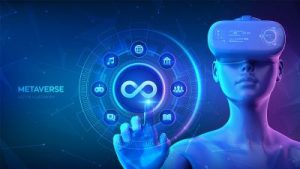
State and local governments tend to be the early adopters of emerging technology in the public sector. Smart city projects, grant management, and regional collaboration have driven localities to implement emerging technology to meet the real challenges of serving citizens. Today, states and localities are experimenting with how virtual reality, and more specifically the metaverse, can help further real-world connections in communities.
Trained by Avatars
Virtual reality has long been used as a tool for training in government - think flight simulators - but today, the technology is being used for more than just tactical training. Virtual reality is helping to introduce scenarios to improve the empathy and understanding of public servants. In the metaverse, public safety professionals can safely simulate responding to dangerous situations (without the real-world risks) while also adding in realistic interactions with "people" behaving as they would during a crisis. Continue reading




